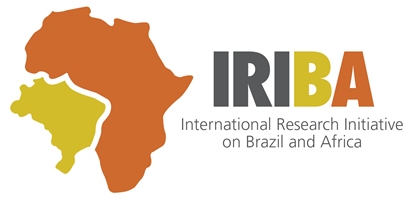Blog
FINDINGS: The life-cycle of Brazil’s national development bank, BNDES
As presented at our 2016 Rio de Janeiro findings workshop by IRIBA researcher Ernani Torres. Listen in Portuguese:
Continue Reading →FINDINGS: The role of fiscal & monetary policies in the Brazilian economy
As presented at our 2016 Rio de Janeiro findings workshop by IRIBA researchers José Afonso and Bernardo Fajardo. Listen in Portuguese:
Continue Reading →IRIBA research in new book: ‘New Order and Progress. Development and Democracy in Brazil’
December 16, 2016
by Sarah Illingworth
Comments are off
IRIBA research has been included in New Order and Progress. Development and Democracy in Brazil. The title documents the economic rise of Brazil from a variety of historical, comparative and theoretical viewpoints, and asks why the country has not been able to sustain its climb. Franc
Continue Reading →Brazil and corruption: don’t hate the player, hate the game?
Much of IRIBA’s research has been cautiously optimistic, analysing changes that saw Brazil embark on a path of pro-poor growth and consolidate its newly redemocratised institutions. Now, the distinctive development ‘model’ that emerged in the early 2000s faces its first major challeng
Continue Reading →IRIBA key findings seminar: Is there a Brazilian ‘development model’?
Prof. Ed Amann and Prof. Armando Barrientos gave a presentation on November 25 on some of the central findings of the IRIBA research. They discussed how Brazil’s comparatively successful development performance over the last two decades has been based on a pattern of inclusive g
Continue Reading →Q&A: Ed Amann on the economic impact of a changed political climate
November 24, 2016
by Sarah Illingworth
Comments are off
Ed Amann is Professor of Brazilian Studies at Leiden University Institute for History, and co-led the IRIBA project with Armando Barrientos. He reflects here on our research findings, and makes a few forecasts in light of new developments in the political climate in Brazil – and
Continue Reading →Social policy and inclusive growth in Brazil
November 18, 2016
by Sarah Illingworth
Comments are off
Inclusive growth doesn’t come out of nowhere. IRIBA’s Professor Armando Barrientos explains the ways in which socially-oriented policy decisions led to economic growth that primarily helped to increase the incomes and wellbeing of Brazil’s poorest, rather than that o
Continue Reading →EVENT: Ed Amann and Armando Barrientos share our findings
November 15, 2016
by Sarah Illingworth
Comments are off
Despite recent setbacks, Brazil has emerged as a significant economic power in the last two decades, combining accelerated growth with falling poverty and inequality. The pro-poor character of economic growth and declining levels of inequality in Brazil over this period stands in mark
Continue Reading →Q&A: Luis Paiva on the success and future of Bolsa Família
November 09, 2016
by Sarah Illingworth
Comments are off
Brazil’s Bolsa Família programme has been credited with helping to significantly reduce levels of absolute poverty and inequality in Brazil. Started in 2003, and funded by less than 0.5% of the country’s GDP, it now facilitates small cash transfers to 46 million Brazilians
Continue Reading →Subscribe to blog via email
© IRIBA 2014 | All rights reserved I Google+
Hosted by The Brooks World Poverty Institute
